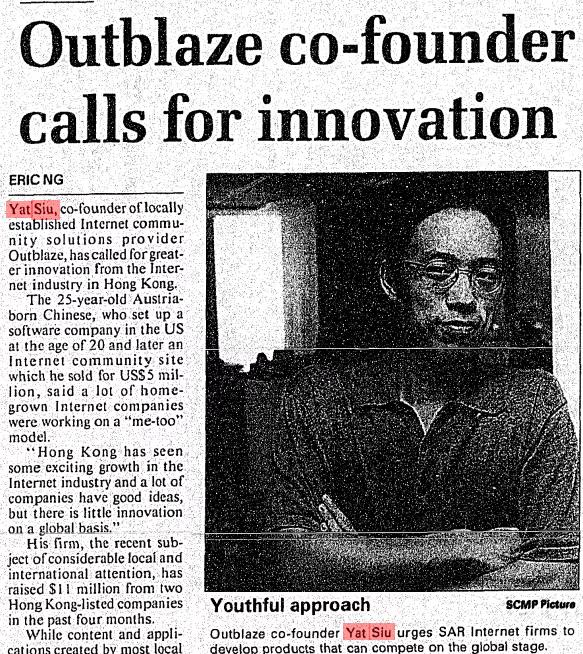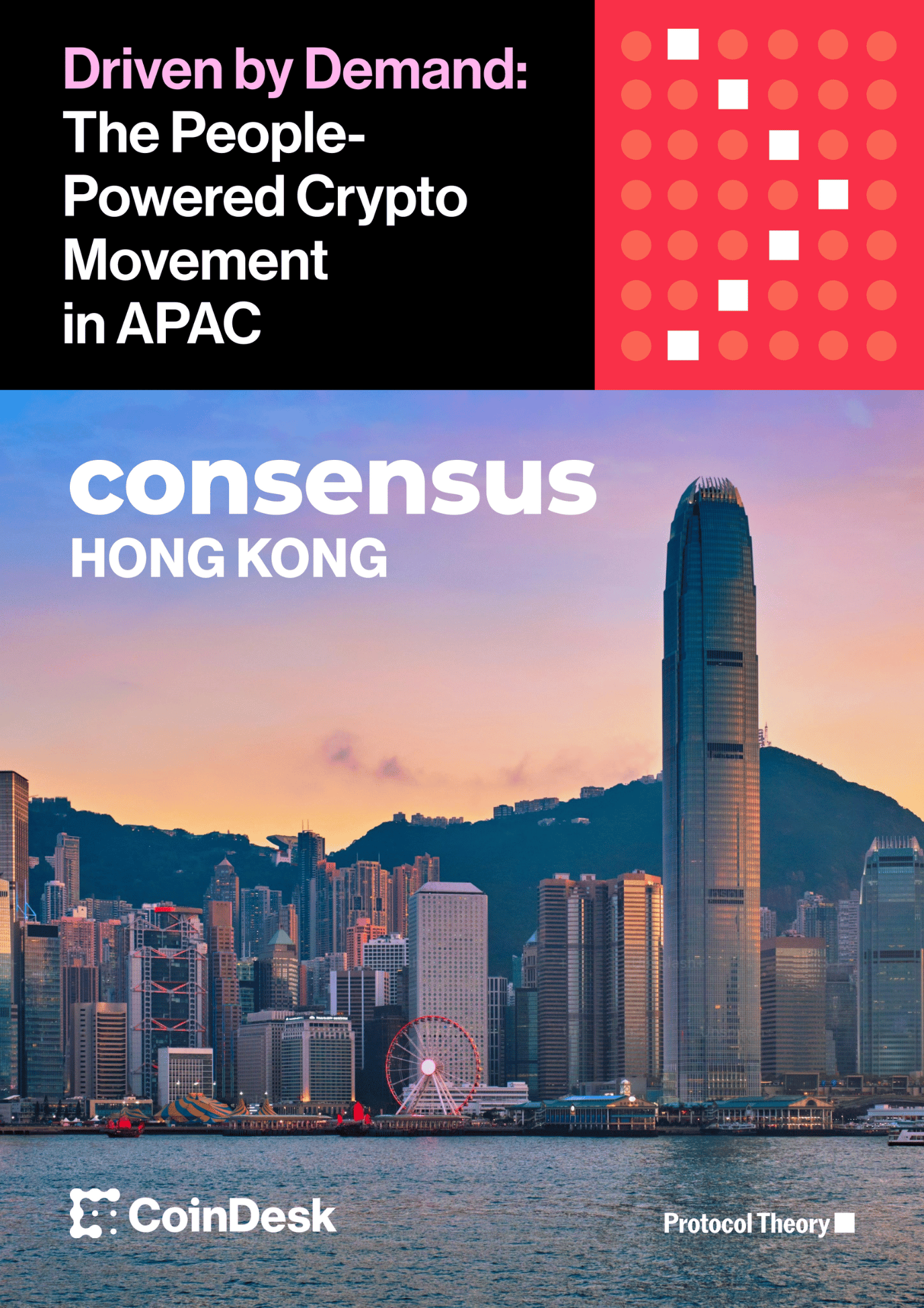
As a venture capitalist, Yat Siu has been in the cryptocurrency investment space for a decade and has seen a lot.
Animoca Brands, the Hong Kong-based venture capital studio and game developer co-founded by Siu, has grown into one of the most influential brands in Web3 culture, with data provider Coingecko estimating the market value of tokens issued by Animoca portfolio companies at more than $45 billion.
But the cryptocurrency winter of 2022-23 was a severe test for Animoca, with the tokens of many of its companies falling by nearly 90%. In the depths of this dark period in February 2023, the Financial Times even doubted whether Animoca could survive.
Times have changed, of course, and in 2024, the price of Bitcoin has soared more than 120%, a U.S. president is about to take office who supports cryptocurrency, and Animoca recently expanded its office space in Hong Kong by nearly four times, even as the local traditional financial market is shrinking.
This series is brought to you by Consensus Hong Kong. From February 18th to 20th, come and experience the most influential events in the Web3 and digital asset fields. Register now and use the code ICPCHINA15 to enjoy 15% off .
Siu now believes the crypto industry is at an inflection point similar to the one he observed in the 1990s when the internet first transformed commerce.
At the time, Hong Kong’s clothing industry (now a relic of the city) relied on shipping samples to clients for inspection during the production process. There was no Slack, no Dropbox or FTP, and fax machines didn’t offer enough resolution for the task.
“People used to design the designs and send them to the U.S. via DHL,” Siu recalled in a recent interview with CoinDesk at Animoca’s Hong Kong headquarters. Siu said the process took days to complete and cost some companies as much as $80,000 a month.
However, a solution came from Siu, who ran one of the first broadband Internet service providers that allowed garment factories to take high-resolution scans (which had previously been difficult to do due to limited bandwidth) and send them to customers in the West.
The use of broadband Internet has made the client review process "infinitely cheaper" and more efficient, eliminating what Siu called the "crazy" practice of relying on physical deliveries to get design approvals.

A 2000 South China Morning Post clipping of an interview with Yat Siu about his work at a previous internet start-up (SCMP archives).
Siu equates this innovation to the emergence of stablecoins and predicts that traditional financial institutions will eventually adopt stablecoins on a large scale.
“If you want to do commercial trade with the United States, you need to have an encrypted track,” he predicted.
“It becomes a business friction over time… If someone says, I want to send you some Tether or USDC, and the other party says, I can only accept wires, that doesn’t work,” Siu said.
In Asia, the use of stablecoins is already common in areas such as supply chain finance, with Siu explaining that profit margins in industries such as fashion are falling, and it doesn’t make sense to use wire transfers to pay supply chain partners when stablecoins will suffice.
“Stablecoins are becoming indispensable for reducing the cost and speeding up these transactions,” he noted.
In Siu’s view, this is the first part of the mass adoption of cryptocurrency by 2025.

Memecoins build communities
In Siu's view, the next step is to expand memecoin more broadly to the entire blockchain ecosystem.
“I expect memecoins to launch their own L1 or L2, they are no longer just tokens, they are building communities and ecosystems,” Siu said. “Memecoins are essentially cultural symbols, they are attracting people’s attention and building narratives that resonate with people beyond financial speculation.”
Siu said NFTs are following a similar trajectory, moving from standalone assets to components of a broader ecosystem.
“NFT projects are no longer just about issuing tokens, they also aim to create ecosystems with cultural and symbolic value,” Siu said, citing examples such as Solana’s growing collection of memecoins, some of which are now launching NFTs to enhance engagement and deepen connections with their communities.
Siu noted that in order for memecoins and NFTs to achieve continued success, they must evolve into a platform that allows the community to “build games, applications, and other experiences that go beyond just speculation.”

Crypto gaming is gaining momentum
Web3 gaming is not a new phenomenon, but efforts to date have yet to resonate with consumers, and during the 2021 bull run, moves by major studios to incorporate NFTs into games like Ubisoft’s AAA series Ghost Recon were met with a lukewarm response from the market.
Likewise, Web3 native games like Decentraland have failed to attract a player base commensurate with their token’s billion-dollar valuation.
Other games, like Off the Grid, that promised to bridge the gap between Web2 and Web3 gaming with beautiful visuals and a focus on gaming first and crypto second, seem to disappear after a few weeks.
However, Siu remains optimistic about crypto gaming.
He believes that games are a powerful entry point to Web3, where culture, community, and ownership converge to create something bigger, an ecosystem where in-game asset trading becomes an integral part of the game itself, and it naturally evolves from concepts such as skin trading in games such as Counter-Strike that many people are already familiar with.
“To attract Web2 gamers, the focus needs to be on building network effects, creating a fun and engaging game, and adding benefits of ownership and transactions,” Siu said. “By 2025, we’ll see that Web2 gamers won’t even differentiate if it’s a Web3 game, they’ll enjoy it for what it is, and the benefits of the blockchain will be an added bonus.”
“They just want to play,” he added.

Reputation as Currency
No economy can function properly without trust between parties and counterparties, and Siu said that while the transparency of blockchain can help create an environment with greater trust, a system for measuring reputation is also needed.
“Reputation is a currency, it’s not just about rewards, it’s also about how the network values you and your contributions,” Siu said.
He explained that reputation networks like Animoca’s Moca ID, which allows for a unified yet decentralized identification method across all companies in the Animoca portfolio, can do just that.
In theory, this would be like the Equifax of traditional finance, allowing for services like unsecured crypto loans — a big departure from the current overcollateralized loan system.
“If you don’t have credibility, I can’t build trust with you,” Siu said. “Imagine the reputation you’ve built over the years, would you risk losing it with one wrong move?”

More than just profits
As a venture capitalist, Siu certainly seeks returns, and he is also a staunch advocate of capitalism and the benefits it brings. In previous interviews, he has said that the sense of despair and inequality among many people stems from a lack of financial literacy, which leads to inequality.
Those who don’t have the opportunity to own property and generate income will not be able to understand capitalism, which, while imperfect, is still the best option for society, Siu said.
He has previously said: “Web3 can save the capitalist narrative by turning users into stakeholders and co-owners,” and warned that “the roots of communism come from the feeling of inequality.”
For Siu, Web3 represents an opportunity to build a better form of capitalism that is more inclusive and participatory, and he urged the industry to focus on blockchain’s transformative potential rather than short-term profits, warning against a “fear of missing out” mentality.
“Let’s remind ourselves that crypto is actually helping us build something bigger, we’re all making money, this industry is awesome, that’s great, but let’s remind ourselves why we’re really here,” Siu said.

Consensus Hong Kong 2025
Consensus is one of the world’s largest, longest-running, and most influential blockchain, Web3, and AI community events, bringing together visionaries, disruptors, and decision-makers who are reshaping the foundations of finance, technology, governance, and society.
This is also the industry's premier event in the digital asset and Web3 space, and it will be held in Hong Kong for the first time. This flagship event will bring together global leaders, innovators and investors from the East and the West for the first time for three days, focusing on communicating, trading and shaping the future of digital assets.
Taking place from February 18-20, 2025 in the vibrant hub of Hong Kong, renowned for its strategic position in global markets, Consensus 2025 offers unparalleled opportunities to network with top professionals and forge impactful partnerships.
Produced by award-winning media outlet CoinDesk, Consensus is based on independent, unbiased journalism that drives transformative ideas and honest conversations.
Don’t miss this moment - join us at Consensus Hong Kong!

Ticket Discounts
As the official partner community of Consensus Hong Kong 2025, IC Chinese Community offers an exclusive 15% discount on tickets, discount code: ICPCHINA15 .
Ticket purchase link :
https://go.coindesk.com/icpchinacommunity
Registration for surrounding activities :
https://lu.ma/ConsensusHK2025
For more details about the conference, please read :
Celebrating Consensus’ 10th Anniversary
Hong Kong will host at least 93 major events in the first half of next year, which is expected to bring in HK$3.3 billion in consumption!
Consensus, the world’s oldest and most influential cryptocurrency and Web3 event, moves to Hong Kong














